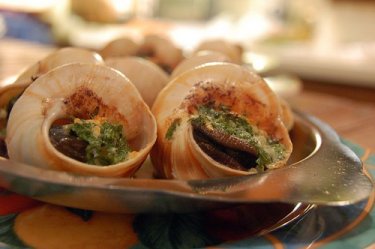Why the Mediterranean Diet?
 From an outsiders perspective looking in on today’s Food channel watching, weight loss show obsessed, life make over infatuated culture, it might seem that we as a country have our health and eating habits under complete control. However, the scary statistics on childhood obesity and obesity related disease in the United States would suggest otherwise. I can’t help but feel that these daunting issues could be reversed with some very simple changes and the right education at an early age.
From an outsiders perspective looking in on today’s Food channel watching, weight loss show obsessed, life make over infatuated culture, it might seem that we as a country have our health and eating habits under complete control. However, the scary statistics on childhood obesity and obesity related disease in the United States would suggest otherwise. I can’t help but feel that these daunting issues could be reversed with some very simple changes and the right education at an early age.
If you have ever heard the term “The Mediterranean Diet” and wondered what it really meant, or knew what it meant and thought about trying to implement this “diet” into your life, then you are already a step ahead of the pack. For those of you that are not aware, the health benefits of the regular consumption of Mediterranean style foods are beyond measure. Some of this cuisine actually aids in the deterrence of many adverse health issues like heart disease and other coronary disorders, diabetes, obesity and all of its related issues, and even certain types of cancer.
In recent years, the lifestyle surrounding the Mediterranean diet has been recognized for its unique health advantages and its overall quality. Locally grown foods, herbs and spices, fresh ingredients and the scarcity of certain foods (such as red meat due to accessibility and cost) are the main focuses of the Mediterranean diet. The geography and fertility of the land really dictates what foods are grown and harvested. This is the reason that the Mediterranean Basin produces some of the best Olive Oil in the world. Red meat is infrequently eaten and only really consumed around the holidays and during special events, and usually consists of lamb. Foods like poultry, eggs, fish, and cheese play an important role in day to day life and yet, even this will vary from east to west in the Mediterranean region. You will also see differences in the consumption of wine as you travel across the Mediterranean.
The Olive tree is native to the Mediterranean basin and regardless of what Mediterranean country is in question, one thing is for certain; there is an abundance of olive oil, which happens to be the chief ingredient in Mediterranean food. Olive Oil has influenced cooking style, lifestyle and offers a significant link in the diversity and healthy nature of Mediterranean food. As a child growing up in Jordan, I still recall the reverence of everything “olive.” Olive oil was treated like liquid gold and for good reason; it is a very rare treat for me to taste Olive Oil in America as fresh and sweet as it was in the old country.
The most important ideas that surround the Mediterranean diet are things like the use of Olive Oil in all cooking and in place of fatty dressings, reducing sugars in your diet (especially in packaged/processed sweets), reducing the amount of saturated fats consumed, eating vegetables and fruit daily, reducing the amount of red meat consumed, eating fish, nuts, and legumes rich in omega-3 fatty acids, diligence in serving size/portions, serving red wine with meals in place of beer, abundant use of whole grains, legumes and beans as the main protein, visiting local farmers markets more frequently and eating FRESH.
I would suggest to anyone reading this brief article to really do some more research. Listen to the experts. Experiment with food and make cooking healthy meals fun for you and your family. This is what I teach and truly believe this country needs to improve our lives, end the obesity epidemic, and bring back family values. It all starts at the dinner table.
So get out there and start eating Better, Fresher, Smarter… eat like a Mediterranean!








